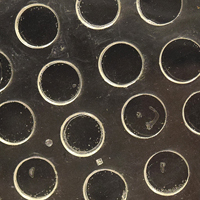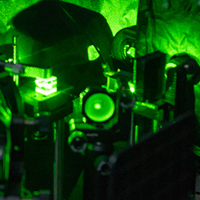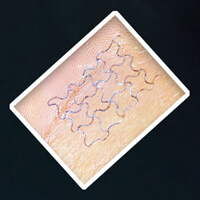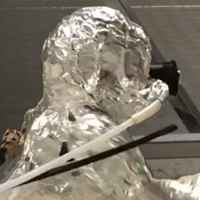Engineering featured in Purdue's 2018 Top 10 research news
Articles about these research efforts appeared in The New York Times, The Washington Post, USA Today, NBC News, and thousands of other media outlets around the world. On average, these stories were each covered by 225 media outlets and reached an estimated total potential audience of 224 million readers (not including social media shares).
Here are the 2018 research stories that were the most popular and reached the widest audience as selected by the Purdue News Service media relations team.

Ulcers from diabetes? New shoe insole could provide healing on-the-go
A Purdue research team led by Babak Ziaie, professor of electrical and computer engineering, created shoe insoles that release oxygen throughout the day when a person walks in order to speed healing for ulcers on the feet of diabetic patients.

World's fastest man-made spinning object could help study quantum mechanics
A levitating nano-dumbbell spinning 100,000 times faster than a spinning dentist's drill was the world's fastest spinning object. Researchers are hoping to use the object to learn more about quantum mechanics and the nature of a vacuum, said Tongcang Li, an assistant professor of physics and astronomy, and electrical and computer engineering.

Simple stickers may save lives and lower medical costs for families
Purdue-developed “smart stickers,” which are both biocompatible and breathable, can be used to monitor physical activity and health in real time. The stickers can be used to monitor patients' health issues, or by athletes during training or performances, says Ramses Martinez, a Purdue assistant professor of industrial engineering and biomedical engineering, who led the research team.

Babies stir up clouds of bio-gunk when they crawl
Babies crawling across a floor inhale a dose of bio bits that is four times what an adult experiences, breathing in high levels of dirt, skin cells, bacteria, pollen, and fungal spores. And that may not be a bad thing, said Purdue assistant professor Brandon Boor.
Source: Purdue News Room
